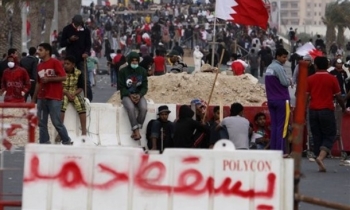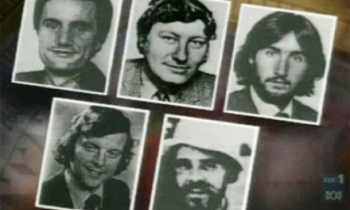Journalists in Assam have condemned the recent threat issued by the United Liberation Front of Asom (ULFA) to four journalists in the state. The ULFA 'commander in chief' Paresh Baruah in a statement on June 8 had accused the journalists of trying to create an atmosphere of confusion over the peace initiative to facilitate direct talks between Government of India and ULFA.

A well-attended meeting of journalists organised by the Journalists Union of Assam (JUA) at Guwahati Press Club Tuesday asked ULFA to desist from interfering with the media in the state and withdraw the threat issued to DN Bezboruah (former editor of the Sentinel), Prasanta Rajguru (executive editor of Amar Asom), and two others. The meeting resolved to launch a signature campaign among all journalists and employees of newspapers organisations in protest against ULFA's attempt to terrorise mediapersons in the state.
According to a report in the Indian Express, DN Chakravarti, editor of Dainik Asam — the oldest Assamese daily — came down heavily on the outfit at the meeting and said ULFA had lost its ability to identify friends and foes. ''ULFA is pursuing a meaningless philosophy which is proving to be self-destructive as well as harmful to the Assamese society,'' Chakravarti, who had earlier faced a similar threat for his critical remarks against the ULFA following the Dhemaji blasts, said.
''There is no problem when we carry ULFA's statements verbatim. But when we are critical or when we publish the truth, they cannot accept it,'' said Rajguru. Amar Asom recently published a story claiming that only a miniscule percentage of people supported ULFA's campaign for sovereignty or independence basing on a survey done by the People's Consultative Group (PCG), a group of civil society leaders nominated by ULFA to initiate peace talks with New Delhi. "The ULFA statement did not say the PCG report was wrong but simply wanted us not to publish the findings saying such stories could jeopardise the peace process," Rajguru said.
Meanwhile, senior editors from across the country have condemned the ULFA threat. "We express our strongest opposition to efforts to intimidate and muzzle the media in Assam, Manipur and other parts of the Northeast by armed groups," the editors said in a statement in New Delhi Tuesday.
"There cannot be any compromise on the freedom of expression, a universal right, and we call upon all groups, including ULFA, as well as the government and non-governmental organiations, to respect this basic right unconditionally. It is this right that gives ULFA and similar groups extensive space in the media and it is unacceptable that these organisations should abuse such rights," they said.
The joint statement was issued by BG Verghese, former editor, Hindustan Times and Indian Express; Kuldip Nayar, eminent columnist; Mrinal Pande, Editor, Hindustan; Shekhar Gupta, Editor-in-Chief, the Indian Express; HK Dua, Editor-in-chief, the Tribune; Ravindra Kumar, Editor, the Statesman; Harish Khare, Resident Editor, the Hindu; Siddharth Varadarajan, Deputy Editor, the Hindu; Om Thanvi, Editor, Jansatta, and Secretary, Editors Guild of India; Bharat Bhushan, Editor (New Delhi), The Telegraph; NK Singh, Editor, Dainik Bhaskar; Sanjoy Hazarika, Consulting Editor, the Statesman; Bharat Karnad, columnist; and Suresh Bafna, Bureau Chief, Nai Duniya.

The International Federation of Journalists (IFJ) has also condemned the threats, and supported subsequent calls made by journalists for their rights to freedom of expression to be respected. "Any attempt at bullying or intimidating journalists strongly undermines freedom of expression and the democratic role of the Indian media," said IFJ President Christopher Warren. "Indian journalists' right to freedom of expression must be respected," he said.
The Assam peace process has already run into rough weather with 19 ULFA-orchestrated explosions ripping through the state since last Thursday. Eight persons have been killed and 61 injured in these blasts. With just a week to go before the June 22 third round of negotiations between the PMO and the People's Consultative Group, questions are being raised over ULFA's commitment to the peace process.
The blasts have also triggered off denials, accusations and counter-charges. Even before the smoke had settled down, Baruah said in a statement, "Some vested interest groups have a hand in these incidents just to sabotage the peace process and defame us. The explosions have been carried out by government agencies to derail the ongoing peace process.'' He then went on to named a few Guwahati-based journalists, including Bezboruah and Rajguru, saying they had joined hands with the police and intelligence agencies in running a campaign against ULFA, aimed at derailing the on-going peace process.
''The government has to be held responsible for this renewed spate of violence. It was the government which pushed ULFA to the wall by sitting on a decision to create a conducive atmosphere for peace talks by undertaking a series of confidence building measures,'' said Dilip Patgiri, a PCG member.
The nine-member PCG, formed on September 8, 2005, includes engineer Mukul Mahanta, journalists Ajit Bhuyan, Haider Hussain and Diganta Konwar, medic Brajen Gogoi, advocate Arup Borbora, advisor to the Asom Jatiyatabadi Yuba Chatra Parishad Dilip Patgiri, advisor to the Manab Adhikar Sangram Samiti Lachit Bordoloi, and sports organiser Hiranya Saikia. Litterateur Indira Raisom Goswami and former footballer player Rebati Phukan act as facilitators, and maintain links between the government and the consultative group.
Shortly after it was formed, the group asked people of the state to express their opinion about the peace process. About 5,670 people responded to that survey of which 1,500 odd were through SMS, another 1,700 through e-mails, and rest through land mail. The results of the survey were not announced Amar Asom exposed it. The result, according to the newspaper, only 300 or so people supported ULFA and its cause, while the rest voiced their opinion in the negative.









